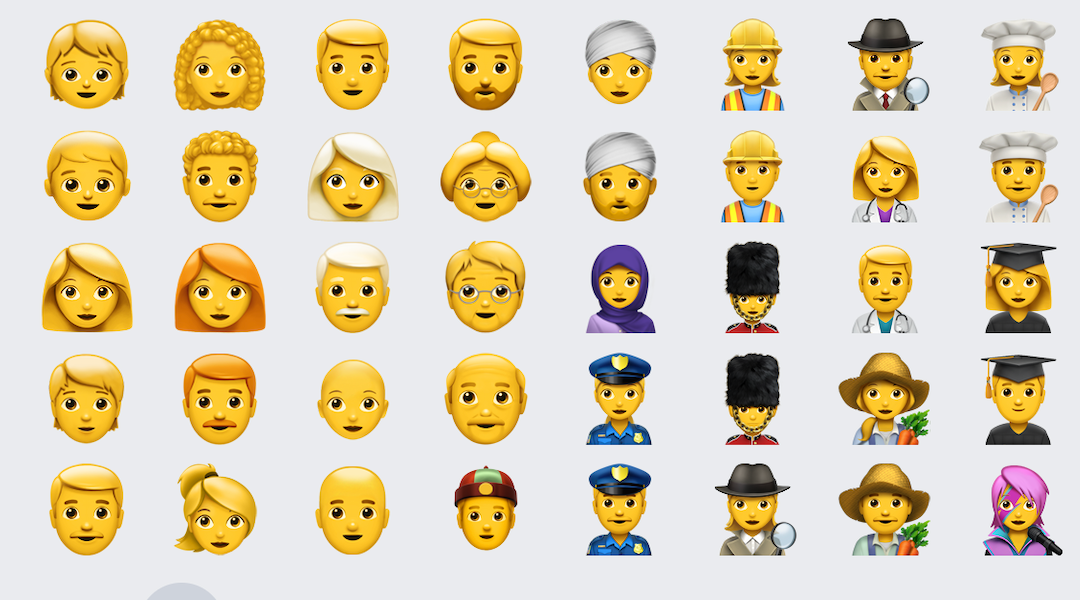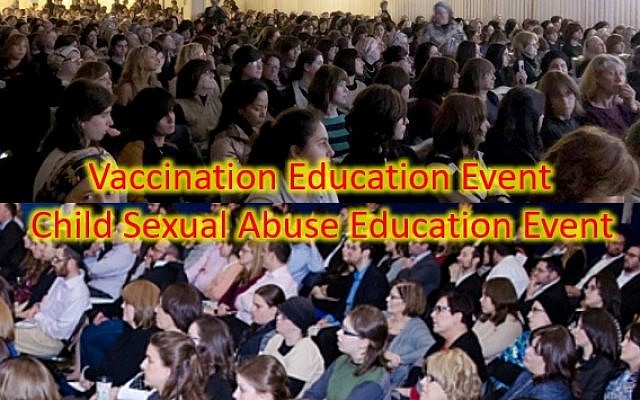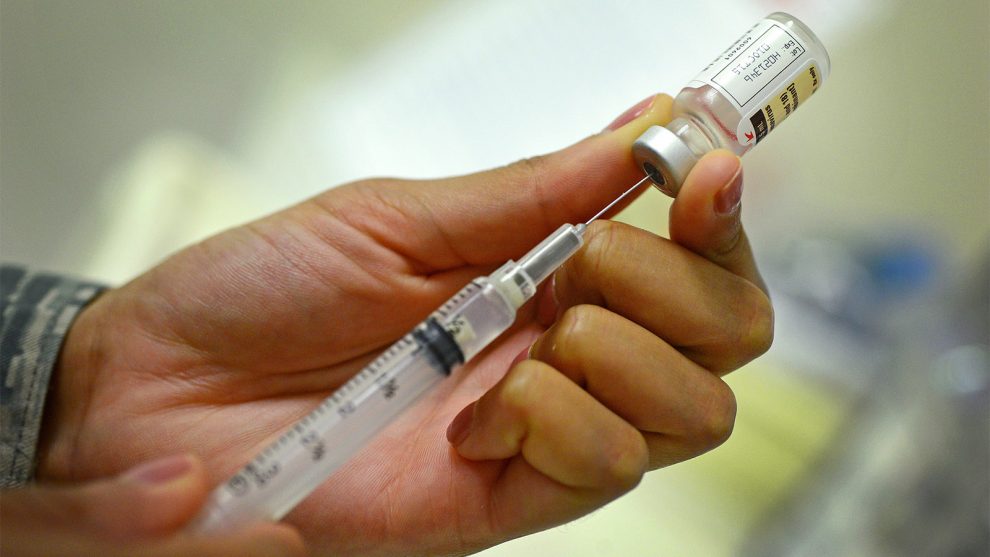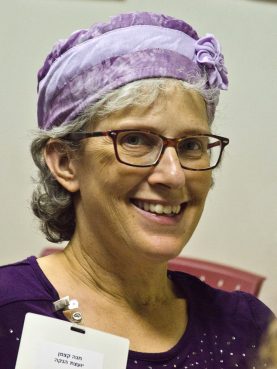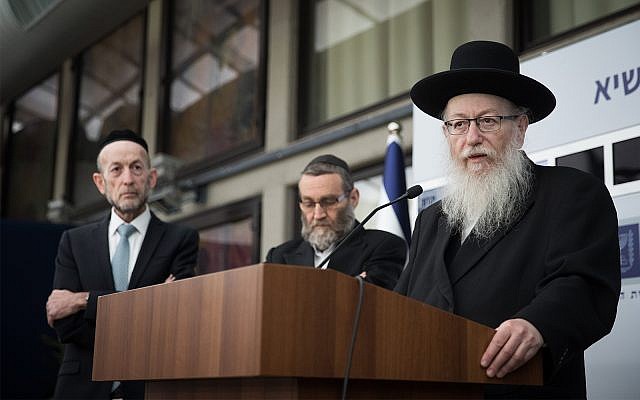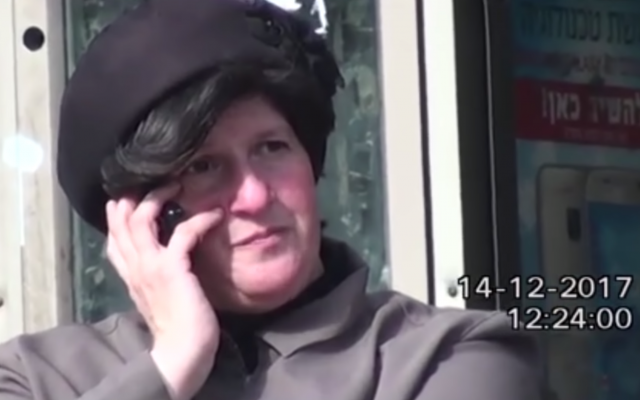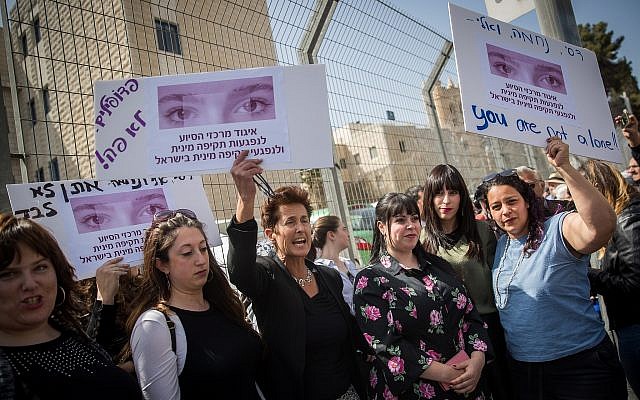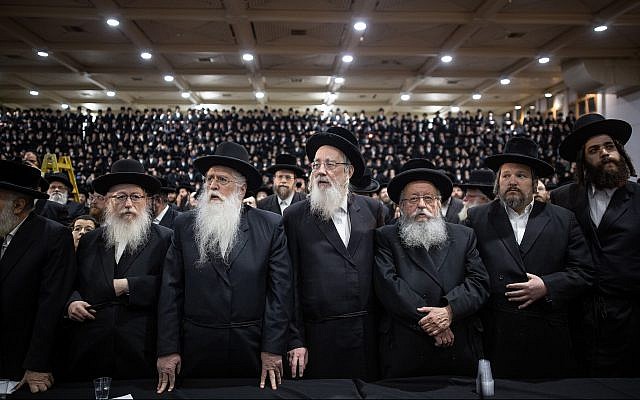The Danger of a Little Knowledge – Vaccinations and Child Sexual Abuse
As measles rages through major Orthodox Jewish
communities,
the vaccination debate naturally follows. It is a story of personal
anecdote and a presumed expertise versus the scientific method and
evidence based medicine.
Our ignorance on vaccination efficacy
mirrors our ignorance on child sexual abuse, where evidence based
scientific studies in immunology (the former) and sociology (the latter)
are valued less than our own personal beliefs. The biggest
irony is that those who rightfully lecture anti-vaxxers on the value of
science are often similarly blind when it comes to child sexual abuse.
While many like to blame prominent Rabbis, the fault doesn’t truly lie
with them. Rabbis can be blamed for not leading, but much of the fault
lies within our own culture.
In fact, this blog post was inspired by reading online debate
about vaccination, and noting how similar it was to debate on abuse
(including some outspoken abuse defenders mocking anti-vaxxers for being
unscientific). Of course, people rarely feel their own position is
extreme. Nobody call themselves “abuse-defenders” or “anti-vaxx”. They
try to minimize and gaslight their own positions. Those who oppose
vaccination don’t say things like, “Vaccines are poison, a conspiracy,
and don’t work”. Rather, they say:
I’m not
anti-vaccination. I just feel there are some vaccines that my child
doesn’t need, and I have questions I feel haven’t been legitimately
answered.
I’m not anti-vaccination. I
just know someone whose kid got autism and I just don’t know if there’s
a link, so I want to be careful and follow my own schedule.
I’m not anti-vaccination. But I know what’s best for my own kid and don’t like the government telling me what to do.
Likewise, nobody says, “I love child molesters and think they should be protected.” Rather they say:
Nobody is more anti-child
molester than me! But you have to understand that in this case the
allegations aren’t even sexual, and besides, they were all from a
misunderstanding that took place 20 years ago. Maybe it was a bit
inappropriate but not illegal. I need 100% proof.
I totally think child
molesters belong in jail, but since this alleged abuser is not in jail,
we have to trust him/her with our kids. Besides, I know the alleged
abuser personally and he/she would never do such a thing! He has done so
much good.
I am totally against child
abusers. But you have to understand that there is bad blood with this
kid and she is a constant trouble maker. And the alleged abuser has kids
to marry off. Since we aren’t sure, let’s just keep an eye on him
Am I making a false equivalency? I don’t think so because the same
erroneous thinking and pattern of positional gaslighting underpins both
arguments.
If you think this post doesn’t apply to you because you vaccinate,
ask yourself why you trust the scientific method on measles, but not on
child sexual abuse protection.
For those who do believe in vaccination but not child safety, ask yourself why?
If we treated measles the way we treat child sexual abuse, here is what we’d say:
- Teach your kids to be careful around those who have the measles.
- Tell your kids to learn how not to get infected when they are near measles
- Request those who get the measles to daven at a different shul where people don’t know they are sick.
- When someone gets the measles, make sure to point out that he or she went 30 years without getting the measles.
- Have the Rabbis keep an eye on people with measles to make sure they don’t cough.
- Assign a shomer so the person with measles can attend community events with the unvaccinated.
- Tell the child he or she does not really have measles at all, but
just a rash, and that they are being reactionary to believe their
doctor.
It is impossible to argue with someone when you don’t have a common
basis for truth. To enter any argument, we must agree on the validity of
the scientific method. Sadly, speakers at
frum events on
child safety and
vaccination
often offer tiny morsels of information to their audience. Those
dispensing poor advise often have titles like PhD, MD and LCSW,
impressing the audience. This leads to the listeners learning “a little
bit of knowledge”, and confidently make poor choices for their
children.
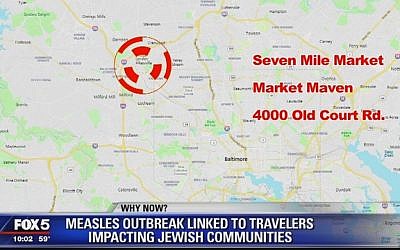 The scientific method
The scientific method
is a way of thinking, a process where we ask questions, form a
hypothesis, test that hypothesis, analyze the results, share the
results, and most importantly, continue to study and analyze. Scientific
studies are designed to test the success (or failure) of everything
from medicine to social programs. They are shared with colleagues for
critical review that feeds into new questions and new tests.
Evidence based medicine is our term for learning from science, constantly reviewing and questioning our results.
It
is a continuous process of questioning core ideas and challenging their
truth, an idea which can be foreign to any fundamentalist worldview.
In the study of vaccination or immunology, new vaccines can only be
declared successful after large studies with thousands of people. There
is a closed loop process, where failures are analyzed for root cause and
success is constantly questioned to be sure it is real. Scientists know
that even success needs to be studied.

To
borrow from the Simpsons, there are no tigers in my backyard, but I
don’t attribute that to my magic tiger repelling rock. However, there
are also few mosquitoes in my backyard which I attribute to my work to
reduce standing water. Thanks to science, I can tell you that a lack of
mosquitoes is due to my own action, and a lack of tigers is not. While
those who oppose vaccination try to insinuate scientists are blind to
the
natural decline in polio and measles,
in fact, proper scientific method means even questioning success.
Studies must test a hypothesis, reduce biases, and most importantly must
be repeatable and open to the scrutiny of peer review.
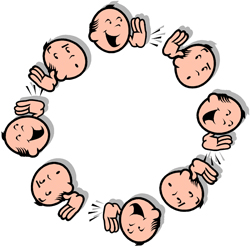
As
an activist for child safety in our schools, camps, and synagogues, the
same thinking must apply to sociology. When a recent homegrown child
safety program came to town, I asked a Rabbi why he was sponsoring it.
The answer was an anecdote – that he heard from someone else that it was
a good program. I proceeded to follow the chain of “heard from someone
else”, and quickly found that just like “vaccines cause autism”, nobody
could point to the person who actually studied and approved the program.
Everybody just assumed it was effective (and not harmful) because everybody else assumed it was effective (and not harmful).
I figured the person who invented the program might be of some help,
so I asked the presenter directly. This person who travels the world
peddling a program not only failed to point to scientific studies and
peer review, but refused to share the materials at all. Evidence based
medicine only works when the evidence is open for peer review. The same
goes for sociological problems in our schools and synagogues. Is it possible this community program only worked to stop child abuse in the same way that a rock can keep tigers away? The organizers would show me no test or study to see if the program actually had a positive impact.
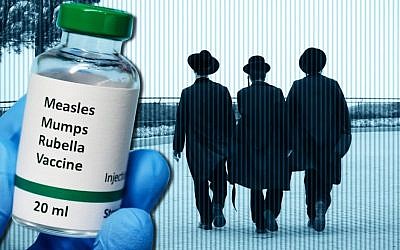
The
scientific method is not about test tubes and beakers but solving
problems in the real world. You can analyze the base rate of measles in a
population before and after a vaccination program to see if it works.
In the same way, you can find other metrics in a school setting to see
if a proposed program works to reduce child abuse.
When a vaccine fails or causes injury, millions of dollars are spent to analyze why and prevent it in the future. What happens when an institution using a homegrown child safety program has a failure? Those
millions aren’t spent analyzing the failure, but often on
PR and lawyers to protect the institution, and sometimes even the abuser.
If you are going to invite one of the Jewish community safety
organizations to your school, ask them about independent research such
as that published by Darkness To Light.
You wouldn’t put a syringe in your child full of medicine that wasn’t
tested, so why trust your child’s safety to programs that aren’t
published and haven’t stood up to scientific scrutiny?
The same community failure occurs when we doubt the stories of abuse
survivors, based on our affinity for the abuser or the abuser’s
institution.
While it can be easy for those not versed in clinical practice and the
study of forensic interviews to say, “It’s the kid’s word against the
adult”, those who work in the field of child sexual abuse understand
child disclosure. A forensic interview is a controlled process to
document a report of abuse.
Our Rabbis and Principals are not trained to provide these interviews, and
abuse policies that require
a school director or synagogue Rabbi to evaluate if a claim should be
reported to police risk contaminating future investigations.
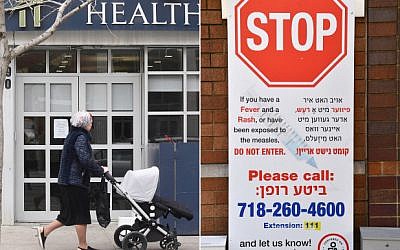
It should be no surprise that the same Rabbinic Authorities that declare child abuse must be reported first to the School Principal/Rabbi are also the ones on the forefront of questioning the efficacy of vaccines. Many of the communities that are in the news today with measles outbreaks were in the news yesterday with child abuse cover-ups.
But
ask yourself – if you believe strongly in the importance of vaccination
and deride those who question it, are you committing the same logical
errors on child abuse? Relying on lack of police action to
defend inaction on child abuse is potentially just as negligent as
permitting religious exemptions for non vaccination.
In both
cases, the law is being followed to its bare minimum, disregarding the
value of public health and possibly putting children at risk.
While it is true that most states provide “religious exemptions” for not
vaccinating in public schools, our private schools (which are supposed
to teach us our religion) should not be allowing them! Are they breaking
the law? No. Are they putting our children at risk? In my opinion, yes.
Our private schools should not have religious exemptions for
vaccination.
And oddly enough, statements from clerical leadership use platitudes
that could be copy/pasted between vaccination and child abuse. These are
not exact quotes but amalgamations of statements I have read on both
vaccination and child safety:
- This is an issue of great concern to us, but we don’t want to do anything unless we are 100% sure.
- There haven’t been enough studies to prove what you are saying.
- We oppose people who believe/act this way, but it is very rare in our communities.
- We are doing fantastically effective things to reduce this rare problem.
- Those who say we aren’t doing a good job are just anti-Semites who are making the non-existent problem worse.
The truth is, we see more action on vaccination than on child abuse
because when it comes to measles, it is harder to shut our collective
eyes. A child who has been abused doesn’t wear the evidence of abuse as
obviously as a child who has been infected with the measles. However,
anecdotes are not science, and child sexual abuse is far more prevalent
and perhaps more deadly than measles. It is time our community honor
evidence based medicine and the scientific method, and apply it with the
same care in all matters to keep our children safe.
https://blogs.timesofisrael.com/the-danger-of-a-little-knowledge-vaccinations-and-child-sexual-abuse/?fbclid=IwAR0H6vX8ePdebFzQmkKvVOgNw7umQ2O2gOAzw1UoNcx189WxLPar2eF_sJ0
